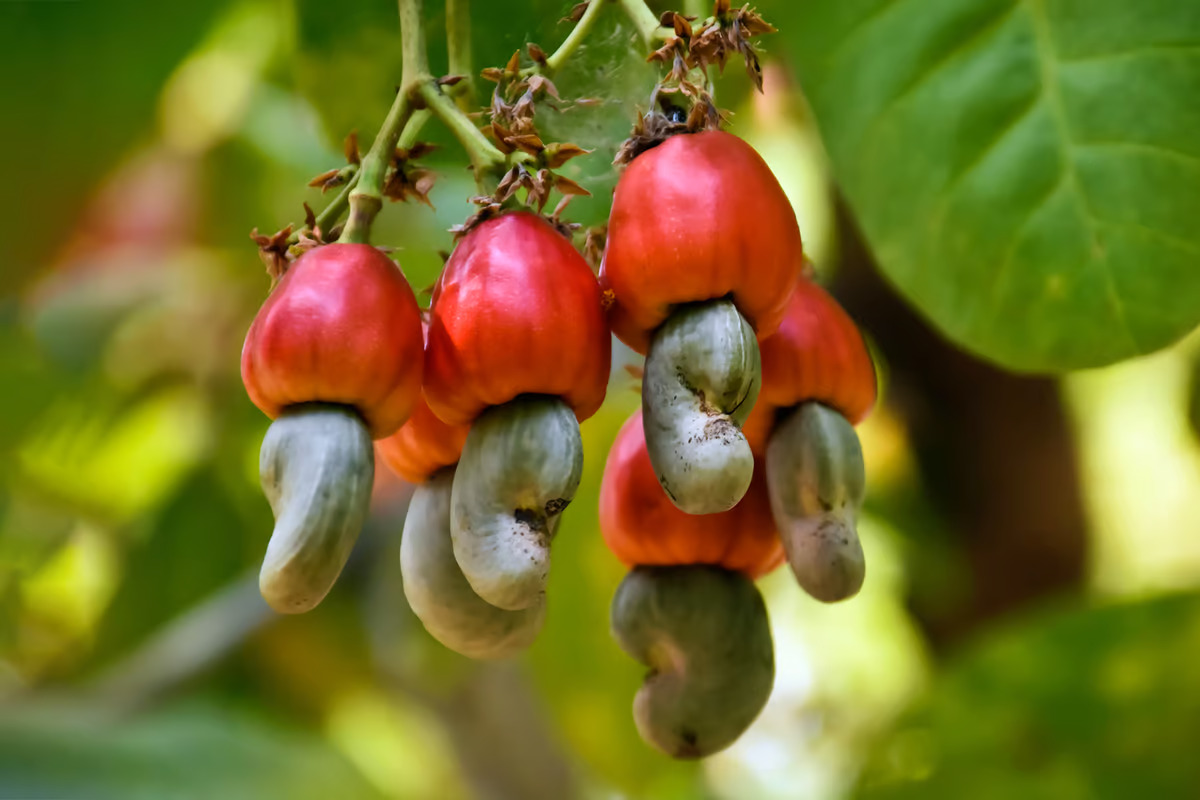 Normally discarded, cashew apples and shells are effective at limiting fat cell development. Depositphotos original extended using generative AI –
Normally discarded, cashew apples and shells are effective at limiting fat cell development. Depositphotos original extended using generative AI –
Obesity affects more than one billion people globally. Caused by a combination of genetic, environmental and social factors and a contributor to morbidity and mortality, it’s little wonder that scientists are focused on finding safe and effective ways to treat the condition.
A new study led by Professor Hiroko Isoda from the Institute of Life and Environmental Sciences at the University of Tsukuba in Japan has found that different parts of the humble cashew plant, from the nut to the shell, affect the development of fat cells, called adipocytes, and the accumulation of fat.
“Various precedent studies have shown the common potential of cashew plant parts, either apple, shell, or nut in reducing body weight, adiposity, and lipid-lowering capacity in human and animal models, however, the direct effect on adipocyte differentiation and its downstream molecular pattern still remain unexplored,” said the researchers. “Therefore, here we sought to evaluate the direct effect of extracts prepared from cashew nut, cashew apple, and cashew shell on adipocyte differentiation and lipid accumulation.”
The cashew tree (Anacardium occidentale) produces the cashew nut and a fleshy part that grows above the nut called the cashew apple. However, when cashew nuts are processed, the cashew apple, although edible, is often discarded or left unused in many commercial nut processing systems. Oftentimes, so is the tough shell that surrounds the nut, which contains a toxic resin called urushiol, which is also found in poison ivy.
Prior research using cashew nuts and cashew apples in rodents and humans has found that they reduce body weight and blood lipid (fat) levels and affect fat storage. For the present study, the researchers prepared extracts of cashew kernel, dried cashew apple, and cashew shell and tested them in various concentrations on 3T3-L1 cells, which are cells that transform into mature adipocytes. They specifically examined each extract’s effect on that transformation process and lipid accumulation, which is the build-up of fat within cells, particularly adipocytes. While some fat in the body is normal and needed for energy storage and insulation, too much can lead to health problems.

They found that cashew shell extract strongly inhibited the formation of adipocytes by down-regulating specific transcription factors that normally promote fat cell differentiation. Transcription factors are proteins that act like switches to control when and how genes are turned on and off in a cell. In the context of adipocytes and adipocyte formation, they’re key to controlling how regular cells turn into fat cells and regulating how fat is stored and used.
–
[For the balance of this very interesting article please visit: https://newatlas.com/disease/obesity/cashew-plant-inhibition-adipocyte-lipid-accumulation/]
–
The study was published in the journal Scientific Reports.Source: University of Tsukuba
–
























